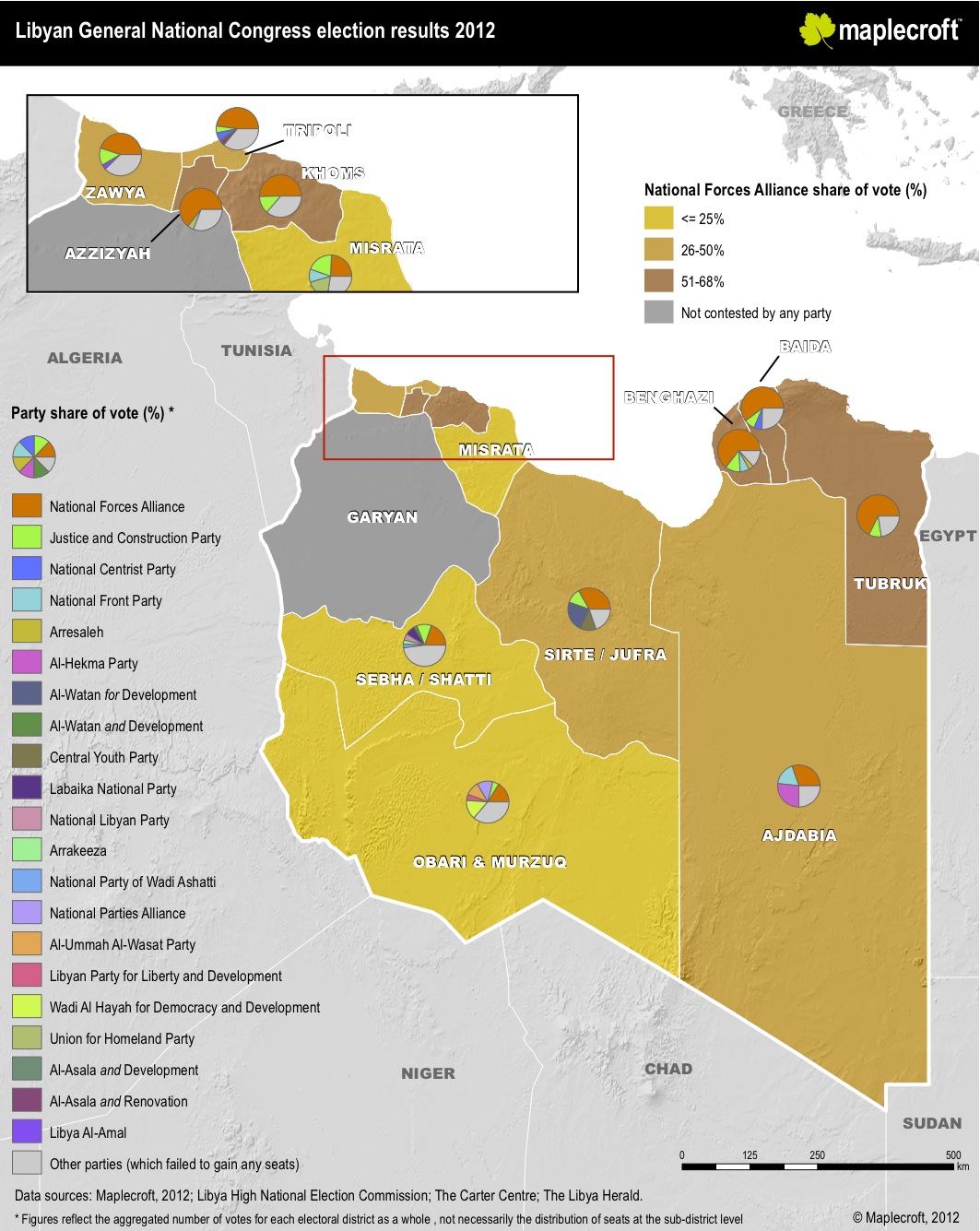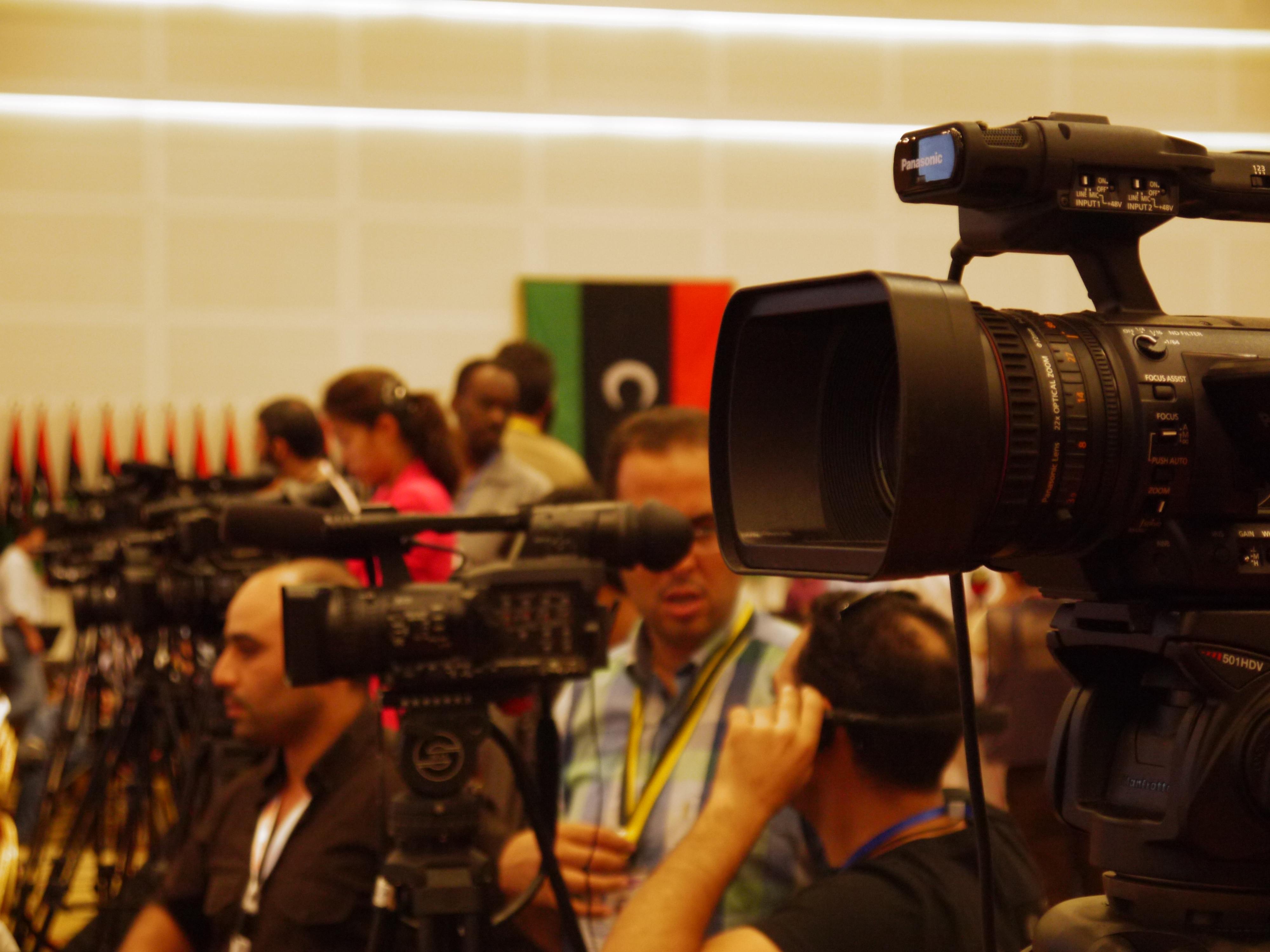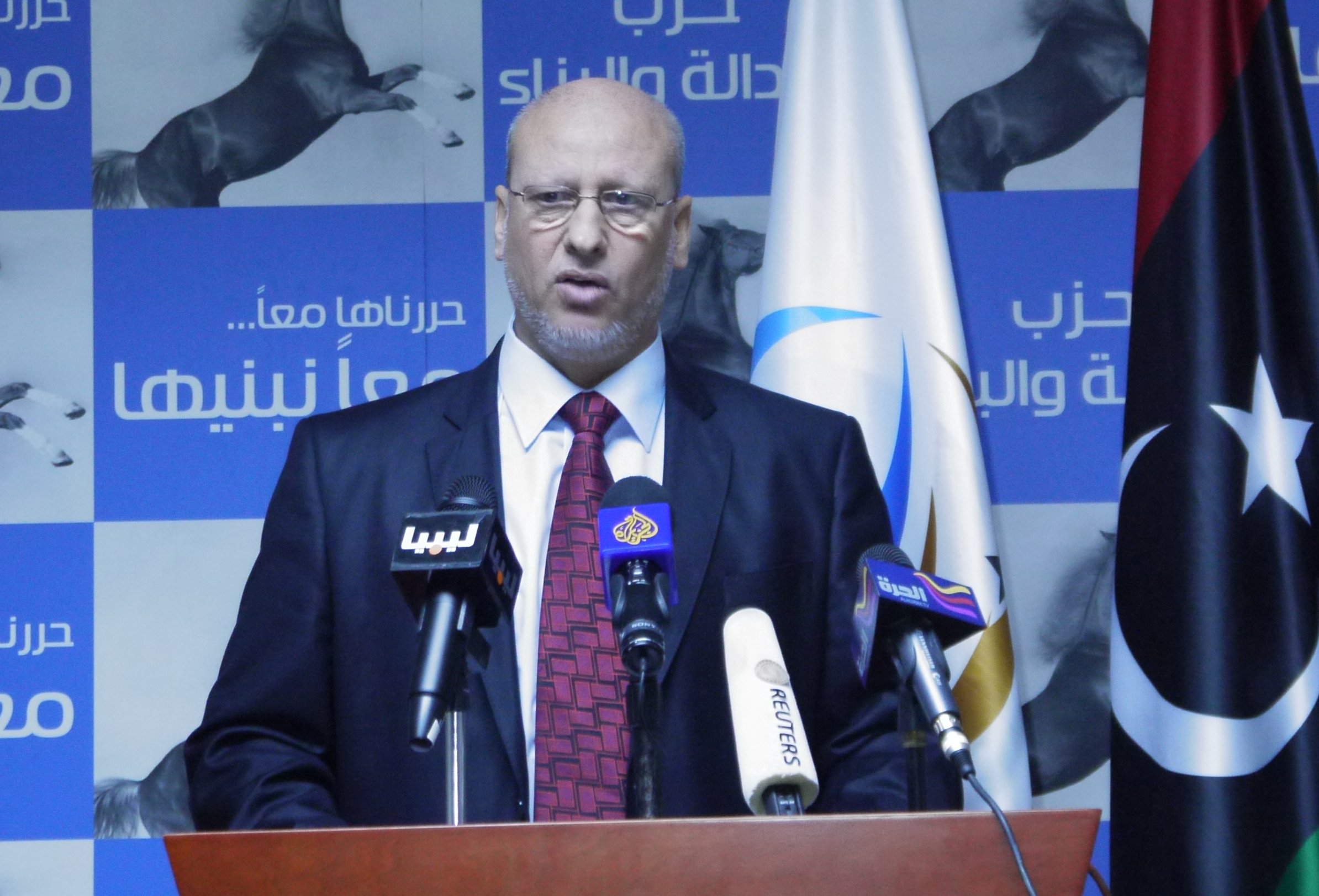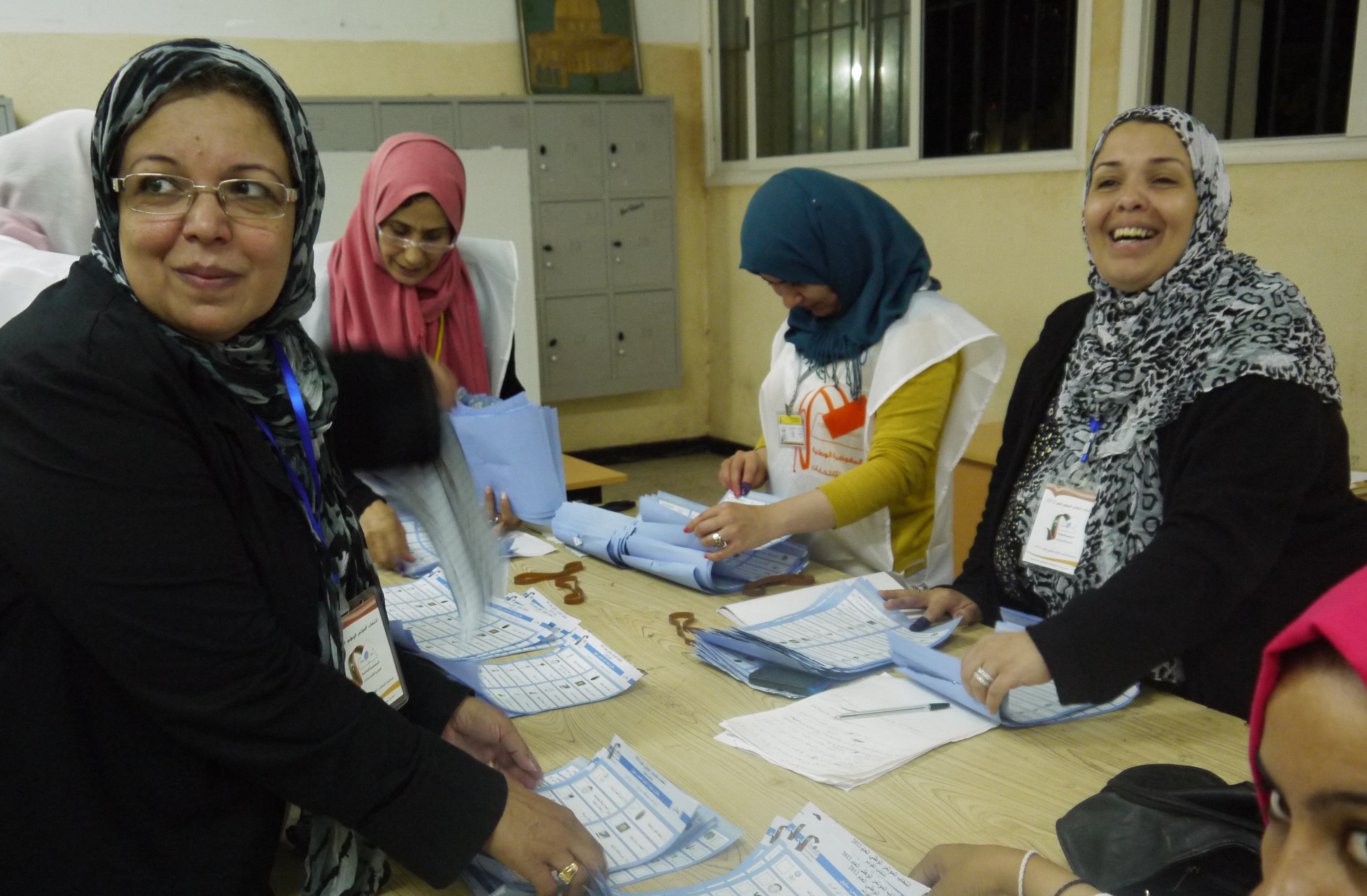Umar Khan gives a flavour of how the election went.
The voting officially stopped at 8pm last night in . . .[restrict]most of the polling stations with only the voters present inside the centre being allowed remain and to vote. But in a few time was extended mainly because of the logistical problems and also because of the disruptions in the east made by the federalists that delayed the start of voting.
The people in Tripoli were celebrating right from the morning as the voting there went ahead without any troubles. The turnout in and around the capital was massive, with majority of the voters lined up even before the polling stations opened. The staff at the polling stations were very friendly and accommodated the voters in a very competent organised way.
Monitors and observers from local and international organisations were present in large numbers throughout the country and visited the remote towns to establish a good view of how the whole process went ahead. The voting process was said to be smooth across the country other than the 24 of the total 1554 polling stations that did not manage to operate yesterday.
The atmosphere in different towns and cities such as Misrata, Ghadames, Rigdaleen, Tarhouna and Al-Jmail was ecstatic after the voting ended. The people were driving to the main squares in their respective towns to celebrate. According to Abdullah Awayeb, a university student from Misrata who fought in the last year’s revolution, “it is very empowering for the people to be able to elect their representatives but they’re actually happy to be able to make the martyrs proud by not wasting any time going straight to elections in record time.”
The town of Zawiya also celebrated in style by distributing sweets and juices in the main square where many were killed by Qaddafi forces in early March last year, gathering in large numbers. Many of the voters then drove all the way to the Martyrs Wquare in Tripoli to be part of the historic celebrations there.
The mood in Benghazi had been very guarded at first but soon after the polling centres wer disrupted in few areas in the city and in Ajdabia, west to Benghazi, people came out in full force to protect, what they have for so long called the revolution of the martyrs of Abu Salim. As Abdusalam Shirqavi, Benghazi resident and a revolutionary fighter said, “the federalists have never been popular in Benghazi but people never really felt like responding to them but today when they threatened the unity of the country and the very fibre of the revolution, people came out to protect it themselves”.
Benghazi started to celebrate once it was established that the whole region was exercising its right to vote. Voters gathered in the Tahrir Square to celebrate the elections and the martyrs who sacrificed their lives for this day. The people were happy but emotional, acknowledging the sacrifices of those who had died.
The atmosphere in Tripoli was electrifying, the people started celebrating as soon as they voted and the celebrations continued late in the night. Martyrs Square was the centre of all the celebrations with people pouring in not only from cross the capital but from many towns around. People came from as far as Zintan, Zliten, Tarhouna, Zawiya and Gharian to celebrate.
One of the main chants used in the martyrs square was, “7/7 (Election Day) happened from the martyrs blood”.
The coastal highway as well as the two main roads into Tripoli from Gurgi and Gargaresh were blocked with traffic. Local residents were out on the streets distributing sweets and spraying rose water on the vehicles passing by. Not since the 17 February anniversary celebration earlier this year have emotions been so high. The mixed crowd of men and women driving down the main roads honking horns, flashing their ‘inked’ fingers, waving flags and chanting ‘Takbeers’ (God is Great).
The participation of women, in last night’s celebration, in such large numbers was unprecedented but not a complete surprise. Women have been part of all the celebrations since the liberation, but their doing so independently, till late night, was certainly an encouraging trend.
Regardless of who wins a majority in the elections, Libyans overcame the challenge with such maturity that the unity of the country was preserved. As Sheikh Salah, an aeronautical engineer, said after voting for a religious party, “I’m not overly excited in knowing who will lead the country now, for me it’s assuring enough that it won’t be Qaddafi”.
Umar Khan can be found on Twitter at www.twitter.com/umarnkhan
[/restrict]





